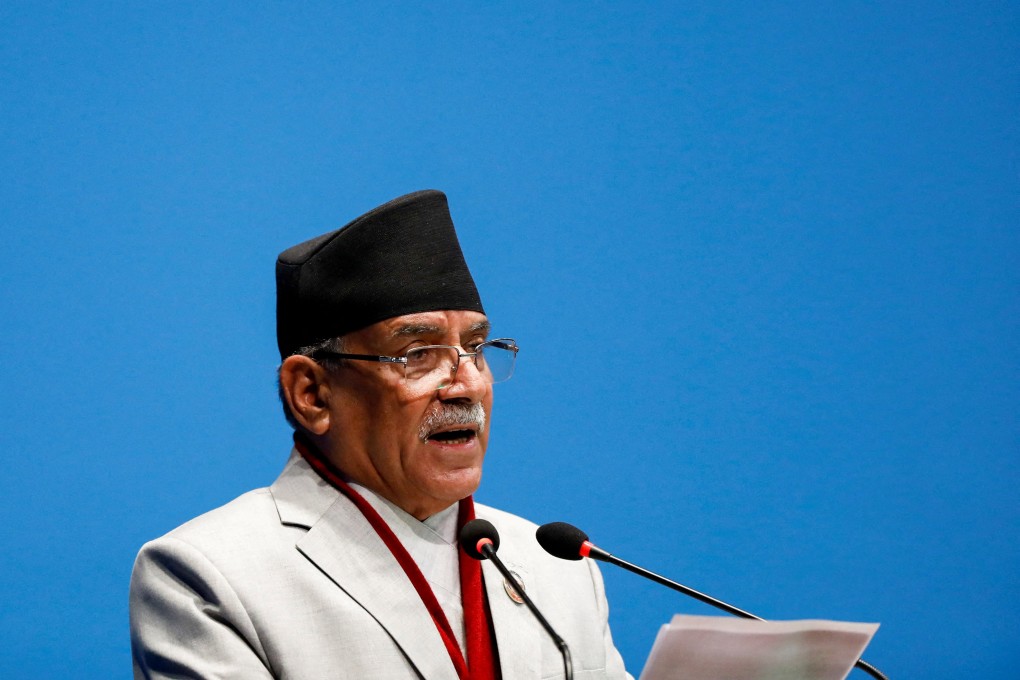Amid China-India rivalry, Nepal’s political shift tips scales in favour of Beijing
- China’s influence in Nepal’s economy and defence has grown significantly in recent years, marking a shift in traditional ties between Nepal and India
- Analysts say Kathmandu must balance its ties with New Delhi and Beijing, and expect India not to be ‘overly bothered’ by the alliance shift

A recent political shift in Nepal with a new party alliance leaning towards China could steer Kathmandu further from India and affect the regional balance of power.
On March 13, Nepal Prime Minister Pushpa Kamal Dahal “Prachanda” won a vote of confidence in parliament. His Communist Party of Nepal (Maoist Centre)’s decision to ally with the Communist Party of Nepal (Unified Marxist-Leninist) – known for its Beijing ties – and move away from the New Delhi-leaning Nepali Congress, marks a significant shift in the country’s politics.
According to Nihar Nayak, research fellow at the Institute for Defence Studies and Analyses (IDSA), this change in alliance could have implications for the China-India rivalry in the region, as it aligns Nepal more closely with Chinese interests.
“China always gloats when India loses its ground in Kathmandu. From global rivalry to regional competition, it always tries to get a major space in the Himalayan region,” Nayak said.
China’s influence in Nepal’s economy and defence has grown significantly in recent years. Beijing has become a major source of foreign direct investment (FDI) in Nepal, particularly through infrastructure projects under the Belt and Road Initiative. This has led to China surpassing India as the largest investor in Nepal, marking a shift in the traditional economic ties between Kathmandu and Delhi.
